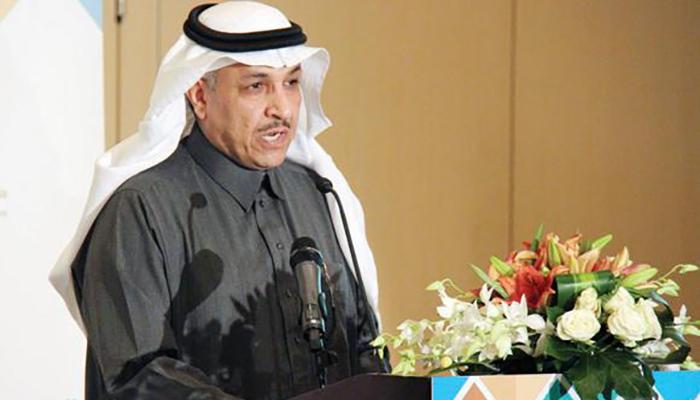
King Salman merges ministries to boost educational standards
Custodian of the Two Holy Mosques King Salman has recently issued a royal decree to merge the two ministries of education and higher education in a historic decision, which defines Saudi Arabia’s ambitious plans for education, according to Naif Al-Roomi, governor of the Public Education Evaluation Commission (PEEC).
Speaking at the launch of the PEEC’s first project on the national education curriculum standards for public schools here on Sunday, Al-Roomi described the king’s decision as forward-looking and one which seeks to achieve comprehensive development and a prosperous future for the country and its citizens.
Al-Roomi stressed that the merger of the two ministries was among one of the most important decisions which reflects the reality of the educational process and organizational needs.
“The merger will bridge the gap between the two ministries and improve educational outputs,” he said adding that the decision will overcome many obstacles in the way of educational reforms in the Kingdom. He said that the combined efforts of the ministries in one operational system will regulate this vital sector and ensure effective coordination in the implementation of its policies and programs.
“Saudi Arabia has been moving toward a knowledge-based economy by bringing about a qualitative change in the teaching methods, improving its education infrastructure and granting scholarships to students,” he pointed out.
Referring to the initiative launched by the PEEC under the theme “Building a National Framework Reference for Curriculum Standards,” he said curriculum standards are the first step in any educational program and describe students’ learning outcomes.
The project to be undertaken in collaboration with the Center of Excellence at King Saud University will be the first in a series of programs and comes within the framework of the commission’s plans to upgrade education in the Kingdom.
The program aims to challenge students throughout their academic career with developing higher standards which will enable them to raise their benchmark after reaching the cognitive domain target.
Al-Room added: “The approach will build assessment tools to gauge the success of those standards, to enhance the quality of education and guide future development operations in the light of the results of the evaluations, which will in turn contribute to the achievement of comprehensive and sustainable development.”
Speaking at the launch of the PEEC’s first project on the national education curriculum standards for public schools here on Sunday, Al-Roomi described the king’s decision as forward-looking and one which seeks to achieve comprehensive development and a prosperous future for the country and its citizens.
Al-Roomi stressed that the merger of the two ministries was among one of the most important decisions which reflects the reality of the educational process and organizational needs.
“The merger will bridge the gap between the two ministries and improve educational outputs,” he said adding that the decision will overcome many obstacles in the way of educational reforms in the Kingdom. He said that the combined efforts of the ministries in one operational system will regulate this vital sector and ensure effective coordination in the implementation of its policies and programs.
“Saudi Arabia has been moving toward a knowledge-based economy by bringing about a qualitative change in the teaching methods, improving its education infrastructure and granting scholarships to students,” he pointed out.
Referring to the initiative launched by the PEEC under the theme “Building a National Framework Reference for Curriculum Standards,” he said curriculum standards are the first step in any educational program and describe students’ learning outcomes.
The project to be undertaken in collaboration with the Center of Excellence at King Saud University will be the first in a series of programs and comes within the framework of the commission’s plans to upgrade education in the Kingdom.
The program aims to challenge students throughout their academic career with developing higher standards which will enable them to raise their benchmark after reaching the cognitive domain target.
Al-Room added: “The approach will build assessment tools to gauge the success of those standards, to enhance the quality of education and guide future development operations in the light of the results of the evaluations, which will in turn contribute to the achievement of comprehensive and sustainable development.”
Share:
ADD TO EYE OF Riyadh
MOST POPULAR
Emirates Publishers Association Sponsors Young Emirati Publishers at London and Bologna Book Fairs
Monday 31 March, 2025 5:06Abu Dhabi prepares to welcome global health leaders to Abu Dhabi Global Health Week 2025
Monday 31 March, 2025 4:05Crown Prince takes action to balance real estate sector in Riyadh
Monday 31 March, 2025 5:19CMA publishes study on evaluating compensation opportunities for affected parties
Monday 31 March, 2025 5:05REGA CEO says real estate balance measures regulate market, achieve stability
Monday 31 March, 2025 5:14 ×



























